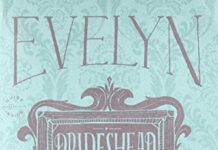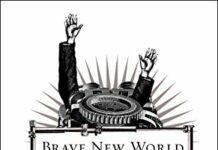
Ebook Info
- Published: 1993
- Number of pages: 176 pages
- Format: Epub
- File Size: 0.21 MB
- Authors: Oscar Wilde
Description
In this celebrated work, his only novel, Wilde forged a devastating portrait of the effects of evil and debauchery on a young aesthete in late-19th-century England. Combining elements of the Gothic horror novel and decadent French fiction, the book centers on a striking premise: As Dorian Gray sinks into a life of crime and gross sensuality, his body retains perfect youth and vigor while his recently painted portrait grows day by day into a hideous record of evil, which he must keep hidden from the world. For over a century, this mesmerizing tale of horror and suspense has enjoyed wide popularity. It ranks as one of Wilde’s most important creations and among the classic achievements of its kind.
User’s Reviews
From the Inside Flap Spellbound before his own portrait, Dorian Gray utters a fateful wish. In exchange for eternal youth he gives his soul, to be corrupted by the malign influence of his mentor, the aesthete and hedonist Lord Henry Wotton. The novel was met with moral outrage by contemporary critics who, dazzled perhaps by Wilde’s brilliant style, may have confused the author with his creation, Lord Henry, to whom even Dorian protests, ‘You cut life to pieces with your epigrams.’. Encouraged by Lord Henry to substitute pleasure for goodness and art for reality, Dorian tries to watch impassively as he brings misery and death to those who love him. But the picture is watching him, and, made hideous by the marks of sin, it confronts Dorian with the reflection of his fall from grace, the silent bearer of what is in effect a devastating moral judgement. From the Back Cover In this celebrated work, his only novel, Wilde forged a devastating portrait of the effects of evil and debauchery on a young aesthete in late-19th-century England. Combining elements of the Gothic horror novel and decadent French fiction, the book centers on a striking premise: As Dorian Gray sinks into a life of crime and gross sensuality, his body retains perfect youth and vigor while his recently painted portrait grows day by day into a hideous record of evil, which he must keep hidden from the world.For over a century, this mesmerizing tale of horror and suspense has enjoyed wide popularity. It ranks as one of Wilde’s most important creations and among the classic achievements of its kind.
Reviews from Amazon users, collected at the time the book is getting published on UniedVRG. It can be related to shiping or paper quality instead of the book content:
⭐ This version is inexplicably bad. It reads as though someone put it through an internet translator and back again, for fun. It’s virtually unreadable.Here is a sample sentence:”I do now not be given as proper with that, Harry, and I do now not agree with you do both.”Here is the exact same sentence, from another version:”I don’t believe that, Harry, and I don’t believe you do either.”Skip this version, unless you want to twist your brain in knots trying to figure out what on earth the editor/publisher did to Oscar Wilde’s story.
⭐ I returned this product to the seller. It was smaller than a regular paperback. I believe it’s size, literally it is a miniature version. The description does not give you the dimensions, but for almost $19 dollars I did expect a full size hardback. I was very disappointed.
⭐ he Picture Of Dorian Gray starts out with the artist who is painting the title character, Dorian Gray. The artist is enthralled with Dorian’s beauty and a sense of innocence. The artist, Basil, introduces Dorian to a friend, Lord Henry, as he sits for the portrait. Some could say that Lord Henry introduces Dorian to a life of no morals and selfishness. As the lord is the first to mention that the painting will always be a picture of Dorian forever young and the real Dorian will grow old. In a way, this stimulates Dorian to announce his wish to give his soul for the reverse.This was my second time trying to read TPODG. The first time I just could not get into it. This time, I can not figure out what made me not want to read it. The story is beautiful. Oscar Wilde’s words paint a portrait of its own. It is written in this mesh of Victorian and Contemporary. So for me that makes it easier to relate to. The words are not like reading Shakespeare.I am not good at critiquing books and getting into every metaphor, or meaning behind it all. When I try that with a book I can’t enjoy it. So I just read, and from the beginning, I could tell this was going to be a new favorite author. This coming from a reader who is not a fan of many classics…but I keep trying and here I found one I loved.I bought the book of the complete works of Oscar Wilde and will be next reading The Canterville Ghost. I can not gush enough how much I loved this book. I am curious now to watch one of the movie version of Dorian Gray because I never have.
⭐ My quick takeaway before a lengthier review: If you’re expecting a thrilling and entertaining read like I was, you’ll probably be disappointed (or at least surprised). In reality, the book moves very slowly, not all that much actually happens, and large chunks of it felt like bit of a chore to get through. A number of reviewers who disliked the book to varying degrees mention that it could have been condensed into a short story or novella to much better effect, and I tend to agree; tightening it up it would have made it a far more enjoyable read, I think. But although it wasn’t the engrossing, suspenseful, edge-of-your-seat book I thought it would be based on on its reputation and what I knew of the concept, it’s still a book that I’m ultimately glad to have read, and one that made me think quite a bit.My main gripe with the book is that there is a great deal of repetition in the story, to the point of complete tedium. Over and over, in the same language, we hear of Dorian’s outer beauty and its effects on everyone around him, of Dorian’s waning character (although we’re only told how bad he’s becoming, but are rarely invited in to actually see his misdeeds unfolding), and, especially, of the hedonistic ideals Lord Henry constantly espouses. Henry just seems to prattle on endlessly throughout the whole book, never changing and immediately quashing with some cynical bon mot anything that might be identified as real human emotion or experience expressed by Dorian (or any other character). This is not a book in which much actually ever happens. There are a few key events that occur, and then most of the rest is just people hanging around at dinners and parties, talking about nothing. There’s also a strange chapter devoted almost entirely to descriptions of the jewels, tapestries and perfumes with which Dorian becomes obsessed.After a while, the repetition as well as all the florid descriptions of the aforementioned luxuries (as well as every room and party and dress and person to whom we’re introduced), becomes incredibly tiresome. It all seems to blend together in one endless, meaningless and shallow blur . . . which isn’t the most fun to wade through, but at the same time is quite effective in impressing upon the reader the kind of ennui and emptiness that this materialistic and frivolous sliver of society seems to have produced to different effect in all of its central characters. And so in that sense, I wonder if the book does in fact succeed brilliantly in painting a picture of how superficial these characters’ lives are, and how, devoid of any real meaning, they spin out of control chasing ridiculous passions and vices, or otherwise completely stagnate.All things considered, I’m still trying to puzzle out whether the things I disliked about the book while reading it are actually part of its brilliance, or if it just really could have used some editing down to make for a more enjoyable experience without losing anything essential to the core of the story. It’s a very short read and despite my issues with it, I’d still recommend giving it a try and deciding for yourself what you make of it all!
⭐ A decade ago I read “The Picture of Dorian Gray” and thought it was aristocratically witty, beautiful as a rotten rose floating in a still swamp, and an intense portrait of its age. After those years my heart has been broken (and I broken others too); found and trust persons that, afterwards I understood; profit in debauchery and self-destruction; visited wealthy individuals that told to me about the value of humility while we were dining in their mansions; uncovered the reality of what actually happens behind the screen of news or rumors. The first time I read this book with innocence: Now life has taught me that Wilde’s words are soundly true.The story is about three exceptional friends: Dorian Gray of exceptional beauty and innocence, Basil Hallward of exceptional spirit for the art, and Lord Henry Wotton of exceptional… maybe an exceptional man as a whole. They met in a crucial point, when Dorian is a natural angel, Basil makes his portrait with all his art and will, and Lord Henry gets to experiment with Dorian as a beautiful object, subtle but powerfully, making him aware since the beginning of his youth, so Dorian wishes strongly to conserve it. And it happens, in a mysterious way… you can decide if it is religious, magical, pagan, or even scientific (Dorian will ask himself if it could be the influence of mind over matter, and that is quite similar to the experiments of water molecules altered by words or mental prays of Dr. Masaru Emoto). From here Dorian Gray is free to taint his soul or moral without consequences, and he does along the novel till make it a maelstrom of debauchery. He is not trying to be evil… just being himself according to the seed that Lord Henry planted in him; he explores everything, to my surprise even his musical experiments reach my distant and exotic country with local musical instruments that barely remain. Experiments so dense in details as a Persian tapestry, full of images of pleasure and corruption. Along the novel there are no rewards or punishments for his intentions to be good or bad. What happens to him happens to all of us in real life, in our world, (different to what is usual in literature) where in reality we are free to do anything we want. That is the reason this book is still fresh in our days as the picture of Dorian Gray.This is a high point in literature, because this is literature for the sake of literature. Mostly literature is a mean for a personal end, usually a personal poverty of experiences in a homme de lettres. Here Oscar Wilde gets to produce something pure and universal, not tainted by foreign ideologies, and as so true to life itself. Even if you cannot read it I’d highly recommend to read the preface. As a declaration of beauty in arts it is just perfect.About the AmazonClassics Edition it has a nice and modern design in typography, I didn’t detect errors, the X-Ray function is helpful and the book, for what I researched, is complete, because includes the chapter of James Vane, the man that seeks revenge against him.
⭐ This is a ‘dark’ novel in the Gothic style, cleverly told with all the wit of Oscar Wilde. Artist Basil Hallward paints a full-size likeness of a new and admired young friend of his, a Mr. Dorian Gray. Amidst a flurry of clever, witty, philosophical repartee ongoing between Gray and (visitor to Hallward’s studio) Lord Henry Wotton, Dorian wistfully wishes to stay young and let his portrait age: “…it were I who was to be always young and the picture that was to grow old! For that for that—I would give everything! Yes, there is nothing in the whole world I would not give! I would give my soul for that!” This becomes his ‘curse’.The novel is full of the hedonist thoughts of Lord Henry which corrupt Gray to a life of debauchery. Wilde is quoted as saying, “Basil Hallward is what I think I am: Lord Henry is what the world thinks of me: Dorian is what I would like to be—in other ages, perhaps.”And, so this read will give, more than most novels, a glimpse at its author. This is a short and easily readable novel that acts as a platform to carry some serious philosophical opinions and observations of Lord Henry (Wilde?) – some of which are surely out of date in the 21st century. Here is an interesting musing from Lord Henry…“Modern morality consists in accepting the standard of one’s age. I consider that for any man of culture to accept the standard of his age is a form of the grossest immorality.” This read will illustrate that misogyny and anti-Semitism were a large part of the ‘standard’ of one’s age’ in ~1890 – so be willing to accept (hold your nose at) some of the author’s observations and opinions, expressed through Lord Henry. But, even with its “warts”, it is a literary masterpiece and well worth a read!
⭐ Like most avid readers, I knew something about this book, but I’d never actually read it, so I decided it was time to rectify that situation.Okay. I read it.It was pretty much what I expected… and more. Much more. More words, that is. I rarely skim read, but for parts of this book, I made an exception. The story itself is, of course, fascinating, and the whole premise is quite brilliant, but for this reader, multiple pages spent itemizing and describing whatever Dorian’s “current interest” happened to be (stones, fabrics, artwork, whatever) merely served to get in the way of the story.Even so, much of Wilde’s writing is absolutely exquisite, and his clever wit shines through like a noonday sun. However, after so much build-up, I found the ending to be a bit abrupt and a teensy bit disappointing.Bottom line? I’m glad I finally read this book, a true classic. Now, when I make reference to it, I’ll actually know what I’m talking about. (What a concept!)
⭐ “Behind every exquisite thing that existed, there was something tragic.”Wow… if that isn’t a powerful statement!I will say this review contains spoilers, but most people know the story of Dorian Gray even if they haven’t read it, so I’ll leave it up to you on whether you want to continue onward.I haven’t read such a classic tale since high school, and I must admit, I have a much better appreciation for them as an adult. It is no wonder that Oscar Wilde received such criticism for this novel; so much being taboo for it’s time. The accusations of homoerotic themes, well, is it any wonder? It was only a few short years later that Oscar Wilde was arrested for sodomy and homosexuality. It’s said that the character of Dorian Gray can often be found in that of Oscar Wilde in their hedonistic ways. Which was probably what Oscar Wilde was most criticized for.This is a very philosophical novel and although most of it is lost in today’s time, I can imagine what an impact that must of had during that time and how controversial this novel really was. Let’s consider the fact that the first time this was ever published nearly 500 words had been deleted. It was feared that The Picture of Dorian Gray would violate public morality.So what’s it all about for those of you who don’t know? It’s a beautiful summer day and Lord Henry Wotton, a philosophical, self-indulgent aristocrat is visiting his friend, Basil Hallward, a sensitive, almost feminine painter. Lord Henry Wotton is observing his friend Basil while he paints a portrait of the young Dorian Gray. Dorian is Basil’s ultimate muse, even expressing “He is all my art to me now… As long as I live the personality of Dorian Gray will dominate me.” Basil is concerned about the influence that Lord Henry will have on Dorian Gray and fears that he could take away the one person who gives his art whatever charm it possesses. While sitting for the painting Dorian listens to Lord Henry and his philosophies and his hedonistic ways… he exclaims Youth! Youth! There is absolutely nothing in the world but youth!” The portrait is finished and once revealed Dorian is beside himself, after listening to Lord Henry’s views on youth Dorian questions his own. “How sad it is! I shall grow old, and horrible, and dreadful. But this picture will remain always young. It will never be older than this particular day of June… if it were only the other way! If it were I who was to be always young, and the picture that was to grow old! For that– for that–I would give everything! Yes, there is nothing in the whole world I would not give! I would give my soul for that!”Dorian soon meets a young actress by the name of Sibyl Vane, who performs Shakespeare in a dingy theatre. Dorian becomes enamored by this young actress and soon asks for her hand in marriage. The young Sibyl refers to Dorian has her “Prince Charming” and is overcome with happiness and love. Sibyl’s brother, James Vane, is not as happy to hear about Sibyl’s new “Prince Charming”. James is a sailor about to leave for Australia, but before he does, he vows that “if this man wrongs my sister, I will find out who he is, track him down, and kill him like a dog, I swear it.” Dorian invites Basil and Lord Henry to see Sibyl perform in Romeo and Juliet. Dorian tells Basil and Lord Henry that Sibyl is a born artist. Dorian exclaims “When you see Sibyl Vane, you will feel that the man who could wrong her would be a beast, a beast without a heart. I cannot understand how any one can wish to shame the thing he loves.”Sibyl is too enamored by Dorian and performs poorly. Lord Henry tells Dorian she is quite beautiful, but she can’t act. Dorian is overcome with embarrassment and confronts Sibyl after the play. He rejects Sibyl and tells her that she has killed his love. He tells her “Without your art, you art nothing.” Dorian leaves Sibyl destroyed.Upon returning home Dorian discovers that his wish for eternal youth has come true. Upon examining the painting Dorian can see a touch of cruelty in the mouth. He begins to question, had he really been cruel? He continues to place the blame on Sibyl, but an overwhelming sense of regret comes over Dorian and he decides that he will reconcile with Sibyl. The next day, Dorian receives word from Lord Henry that Sibyl has committed suicide by swallowing prussic acid.Dorian decides to lock away the portrait from any prying eyes. He can’t risk anyone knowing his secret. He accepted his fate, if the picture was to alter, it was to alter. “This portrait would be to him the most magical of mirrors. As it had revealed to him his own body, so it would reveal to him his own soul.” Dorian spends the next eighteen years studying perfumes, music, jewels, and embroideries and tapestries. Everything he collected was a means to escape.One night before leaving for Paris, Basil decides to pay Dorian a visit to confront him about all the rumors he has been hearing about him. Dorian does not deny the rumors of debauchery. Basil states, “I wonder do I know you? Before I could answer that, I should have to see your soul.” Dorian replies “You shall see it yourself, to-night! Come: it is your own handiwork.” Dorian takes Basil to see the portrait. The portrait has become so hideous that Basil is only able to recognize it by his vermillion signature in the left-hand corner. There was something in its expression that filled him with disgust and loathing. Basil pleads for Dorian to pray, to pray for repentance. Dorian becomes overwhelmed with hatred for Basil and stabs him to death. Dorian calls upon an old friend and scientist, Alan Campbell, to help him dispose of the body. Alan refuses to help Dorian, which leaves Dorian no choice but to blackmail Alan.Overwhelmed by guilt, Dorian recalls what Lord Henry had once said to him, “To cure the soul by means of the senses, and the senses by means of the soul!” He decides to go to an opium den. Upon leaving he has an encounter with a woman who refers to Dorian as “Prince Charming”. James in unknowingly present and overhears this, he rushes after Dorian. James is holding a gun to Dorian’s head, prepared to shoot him, he explains “You wrecked the life of Sibyl Vane”. Dorian denies having ever known Sibyl and convinces James that he’s far too young to have known this woman. James is apologetic, but Dorian leaves him with a warning “Let this be a warning to you not to take vengeance into your own hands.” Dorian storms off into the night. The women from the opium den questions James for having let him go. James explains that he is not the man he is looking for, that he is little more than a boy. The woman explains that it was eighteen years ago when she had met Dorian and that he hasn’t changed much since. She states “They say he has sold himself to the devil for a pretty face.” James begins to stalk Dorian causing him to fear for his life. However, during a shooting party a hunter accidentally shoots James Vane who was lurking in the thicket. Dorian is relieved!Following this chance accident Dorian decides that he wants to be good. He thinks that maybe by doing good that he can undo all the wrong that he’s done. He starts by not breaking the heart of his newest love interest Hetty Merton. He wonders if he new good deed had changed the appearance of his portrait. Upon inspection he discovers that there was no change, that it was still loathsome, more loathsome, if possible than before. Dorian decides that only full confession will absolve him of his wrongdoings. But with no evidence left of his crimes other than his portrait, he decides to destroy it. He grabs the knife, the same knife he used to kill Basil Hallward, and stabbed the picture with it. It had killed the painter, and now it would kill the painter’s work. A loud cry is heard by the servants and passersby. Upon entering the locked room the servants find hanging on the wall a splendid portrait of their master as they had last seen him in all the wonder of his youth and beauty. Lying on the floor was a dead man, with a knife in his heart. He was withered, wrinkled, and loathsome. It wasn’t until after further examination and discovering the rings on the body that they recognized the man as their master, Dorian Gray.
⭐ “The world is wide and has many wonderful people in it.” – Basil from “The Picture of Dorian Gray” by Oscar Wilde.That specific quote from the novel we are reviewing today has so much to do with humanity as much as it has to do with the book. This is the first of the #StayClassyFeb reviews that I will be doing this month as February is dedicated to classics novels in the public domain that have reviews, but not a modern take on them.I am hoping my review series provides you some insight into some of the old classics while also giving a clear picture on what to expect from the e-reader copy. Are you ready? I am. Let’s get some tea called in, be sure you tip your handsome driver and whatever you do, do not go into the room alone with the painting. Here comes a review of Oscar Wilde’s “The Picture of Dorian Gray”.OpinionFor this first review I’m choosing the classic that I’ve used in I don’t know how many jokes or quips over the years. I have compared Dick Clark, Cindy Crawford and Joan Rivers to Dorian Gray. “I bet they have a painting in the attic somewhere” is something I don’t mind quipping when I see someone who is teetering on ageless and the societal perfection with something underneath. As always I am going to review this book not only on the book, but on the copy I read, and base this as if I had no idea what this book was about because I’m not sure everyone has read “The Picture of Dorian Gray”.My first impressions of Dorian Gray all these years later is familiarity, but subtlety. If you have never read this book, it comes across kind of slow to begin, but that’s a trap. Oscar Wild I believe inspired writers to layer in foreshadowing carefully into their works ahead of time. This novel has a subtle layer of foreshadowing in the first and second chapters that take us through the whole book and adds some intrigue. The story and its beautiful layers are so important to what happens later, and if you are not closely paying attention to the first two chapters, it’s going to be very confusing later.Critiques, and believe it or not this goes into the “Story Structure, Foundation and Presentation” part of scoring for my reviews. So there are MANY copies and revisions of this book, that one would think whoever is doing the e-books would be respectful and ensure their copy stands out. Well, alas, this one does not. The words are stuck together, the commas are on top of each other and I could go on. It’s tough to read. Whole sentences sometimes do not have spaces between them. It’s probably one of the poorest examples of an e-copy that I have seen in some time, and I review books from all sorts of writers and publishers.I feel if Oscar Wilde had self-published, this would have been picked up immediately and fixed. “A Picture of Dorian Gray” deserves far more care and love than it got in its e-copy. Here’s an example:Page 44“Belgian brute, to insult his son-in-law inpublic-paid him,sir, to do it, paid him- and that thefellow spitted his man as if he had been a pigeon. The thing washuhed up, but, egad Kelso ate his chop alone at the club for sometime afterwards.”That’s the bottom third of dialog on page 44 on the e-copy that I read on my Kindle. To verify it, I went back to this on my son’s Amazon Fire 7, downloaded the book, and it’s the same thing.I feel “The Picture of Dorian Gray” deserves more love and respect than this copy gave the story. I hope someone will go back in and fix the e-copy. This sadly impacted the score on the novel, and not because of Oscar Wilde, but because of the way it was put together on the e-reader.Next, let’s go into some story critiques. Oh yeah, even Oscar Wilde cannot escape the catchy gaze of Mrs. Y. For the first of the story critiques, we return to “Story Structure, Foundation, and Presentation” and it’s pacing we are looking at. This book has some very dry and slow pacing at times. Chiefly, anytime they are talking about what Dorian Gray has in his house, or the way something looks, it’s a slowly paced sequence. Now, that doesn’t mean it’s not important, it simply is slow and it can be tedious to get through.My next critique, we go into the “Lost in Translation” section of my scoring. While I am certain this was trendy and cool back in the day it was written, the fact that I have to stop to Google Translate French to understand what is going on is a tad on the annoying side. It’s not terrible, but I like to know what I’m reading. Frequently I suppose to make it fancier, there are sections of French poetry or even French sayings. I know just enough French to be able to order food in Louisiana, so this one was a bit of a struggle at times. If you are like me and you do not throw French prose into your sentences, you may find that Google Translate is your buddy. Also, good to note, if you have an Android device you can use the translation app to hover over the words and figure out what it says easier. I am not sure if Apple has an equivalent or not, but I know Android does.For this part of the review let’s go into my favorite things about this book. This is a book we should read and reflect on in our times. This story has so much of a cautionary tale about entitlement versus gratitude and how that can shape a life, as well as ignoring things as we grow. Everyone grows up and when they are young there is so much potential. But in that potential, there is a desire or tendency to do impulsive things that can corrupt us. Over time that corruption becomes festering and digesting. That’s the point of the narrative. So thus, even though it seems like a long-ago book, it’s not. It’s still something that we can connect with even now.There also is a lot to say about how you can’t run from your problems or hide them. At the end of the day, your problems must be dealt with or they become bigger problems. No drugs, no alcohol, not even running away makes them any less of a situation that must be addressed. I like that this story can put a glaring spotlight onto things we deal with even now.The other part I enjoyed was the detail work and imagery of Oscar Wilde. Though his words are formal and older toned, they are profound and beautiful even to this day. There are beautiful descriptions, and then there is disgusting imagery in the narrative, that I even find beauty in their wake. Even the most horrible stuff, from the description of a hunting incident to the seedy docks and old opium dens, has a beauty to the description despite the grotesque subject matter.Though this is an older book, it has so much to say about the influence of the “wise” to the “naive”, and why maybe it is better to listen to your heart instead of the words of others.Lastly, the thing I like is the message of “Dorian Gray” and that message is ‘Know thyself”. Throughout the book there is an underlining question, will he fix this or will he continue his ways? This adds a kind of dynamic tension to the book and strings along everyone that is in Dorian’s life. But the thing that continues to happen is he listens to the wrong things or he thinks away the truth of the matter. Even in a situation where he could have done the right thing and by all rights believed so, the truth of reality comes around. That message is important. If one knows their own self, and knows deep down what it is to be a good human or a bad one, they can make the choices accordingly. It’s when they deny it in either way that things become murky.My last thought about it, whatever happened to the picture? Someday if you want to debate me on that topic let me know in the comments below. I’d love to have a discussion about this book!ScoreWhat does the great Oscar Wilde get from Mrs. Y all these many years later? Does he get an automatic pass because this book itself is youthful in its age, or does this masterwork fall flat because of out of date situations?The e-book copy took a hit. If I was scoring just the e-book copy without any story considerations it’d be a 62/100. However, considering the story and this specific version of “The Picture of Dorian Gray” by Oscar Wilde scored a solid 82/100 which is a 4-Star rating for Goodreads and Amazon.Despite the errors with the mashed words, the overall story managed to bring the score back up even though the e-reader copy itself is in need of some love and affection.Join me next time my friends, and I hope you have a lovely day!
⭐ When you think you know the plot of a book – spoiler! – painting ages, man does not – then actually read said book. Egads. I shan’t use that reference again, for beautiful, eternally young Dorian is a right selfish git.Part of the beauty of Oscar Wilde is his immense quotability, quips ready for so many of life’s moments, sly, cynical and perfect for any era. Some of them are unexpectedly lovely: “When I like people immensely I never tell their names to anyone. It is like surrendering a part of them. I have grown to love secrecy. It seems to be the one thing that can make modern life mysterious or marvellous to us. The commonest thing is delightful if one only hides it.”And other, to be kind we can call old fashioned, by which we mean sexist AF.“I am afraid that women appreciate cruelty, downright cruelty, more than anything else. They have wonderfully primitive instincts. We have emancipated them, but they remain slaves looking for their masters, all the same. They love being dominated. “The book is full of beliefs like the above, about women, Americans, lower class people – in short anyone who is not Harry or Dorian, with the brief exception of Basil before he disappoints and is cast aside as well. Everything is discussed at length, back and forth as if some eager neophyte sits at their feet, watching the conversation like a tennis match, to jot down words of wisdom. It feels like The Great Gatsy’s grand sense of style over substance, though perhaps I should say Gatsby feels like this.Some passages do little to contribute to the plot – pages upon pages of Dorian’s collected indulgences – that are difficult to slog through. I’ll admit to skimming.There are not homoerotic undertones, there are large flashing neon – oops, candlelight – signs of bisexuality and homosexuality. Scandalous at the time, but subtle compared to everyday life now. One wonders how much living in the midst of that societal attitude contributed to the negativity expressed so much above, and mourns for how the author might have been able to flourish in a different time.
Keywords
Free Download The Picture of Dorian Gray (Dover Thrift Editions) in Epub format
The Picture of Dorian Gray (Dover Thrift Editions) Epub Free Download
Download The Picture of Dorian Gray (Dover Thrift Editions) 1993 Epub Free
The Picture of Dorian Gray (Dover Thrift Editions) 1993 Epub Free Download
Download The Picture of Dorian Gray (Dover Thrift Editions) Epub
Free Download Ebook The Picture of Dorian Gray (Dover Thrift Editions)





